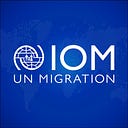2018 World Youth Report
The verdict is in: We need policy that have youth at the centre. Young people are already agents of change in their local communities. It’s time the world catches up. We’ll need young people at the forefront to create a more inclusive, fair, sustainable future: a future we want.
In pursuit of this future, three years into the implementation of the 2030 Agenda, UN DESA launched today the World Youth Report on “Youth and the 2030 Agenda for Sustainable Development”. The Report, released biennially, offers information and analysis on progress made in addressing youth issues, including assessment of policy gaps and possible policy responses.
The 2018 World Youth Report covers areas including youth education; youth employment; evidence-based policies; and youth implementing the 2030 Agenda. It underlines the centrality of active and meaningful youth engagement in sustainable development efforts for more inclusive and stable societies by 2030.
Here are some key points found in the Report:
● On Education. 142 million youth of upper secondary age are out of school, and upper secondary enrolment rates average only 14% in low-income countries. In fact, almost 30% of the poorest 12-14-year-olds have never attended school. Disparities within and between countries in educational participation among youth are stark, with female gender, poverty, totality, disability, and migrant/refugee status being elements of disadvantage.
● On Employment. Even though the global economy has started to recover, youth employment has worsened in recent years. Indeed, 71 million young people are unemployed and many more in dangerous or informal work.
● On Data Collection. Evidence-based youth policies, adapted to national and local contexts, help ensure that youth development challenges are addressed. Important lessons can be learned from recent efforts to monitor spending in other cross-cutting areas such as gender, children and climate. The Report further underlines the need to strengthen youth participation mechanisms to facilitate young people’s engagement in policies and activities that enhance sustainable development efforts. Lack of timely and accurate age-disaggregated data on the situation of youth must be addressed.
● On Youth Engagement. Young people need to be able to engage with local and national government in delivering on policies and programmes on the ground. Young people should be able to engage in public-private partnerships in driving the implementation of the 2030 Agenda, including financing and harnessing technology for data collection and utilization; and to have a seat at the table informing equitable and diverse policy design, implementation, monitoring and evaluation.
As António Guterres, the UN Secretary-General, noted last year: “Globalization, new technologies, displacement, shrinking civic space, changing labour markets, and climate impacts” provide new challenges for this generation. The Report clearly shows that youth are already making huge progress on these challenges.
In short: Young people are already changing the world. It’s time we let them.
The 2018 World Youth Report is available for download here.
The article was prepared by Amira Nassim, Migration Policy Officer at IOM’s Office to the UN.
